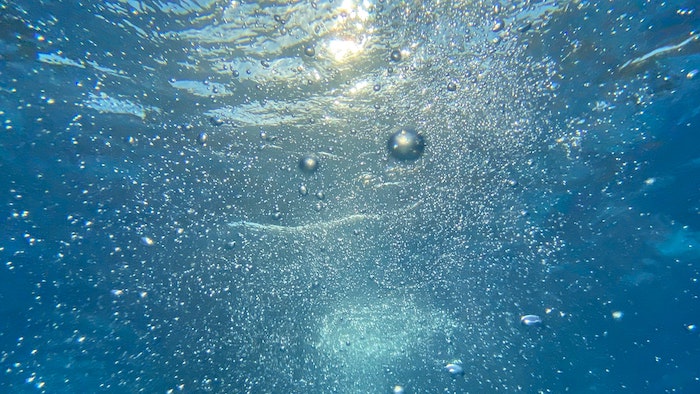How to Reduce Water Weight Correctly

Losing water weight is a great way to trim down and look your best. But if you do it correctly, it can be safe. There are many ways to reduce water weight healthily and safely, but it's essential to know the right strategies.
This blog post will explore the different ways to reduce water weight correctly. From drinking more water to taking natural diuretics, here's everything you need to know about safely dropping that extra bloat!
What is water weight?
Water weight is the amount of water in your body that is not needed for essential bodily functions. You may feel bloated or swollen when you have too much water weight. This can happen for various reasons, including overeating salt, drinking too little water, or pregnant.
There are a few ways to reduce water weight. One way is to drink more water. This will help your body to flush out excess water and reduce bloating.
Another way is to cut back on salty foods. Too much salt can cause your body to hold onto extra water. Finally, you can try diuretics, medications that help your body get rid of excess water.
If you are concerned about your water weight, talk to your doctor. They can help you determine if you are retaining water and offer suggestions for reducing it.
Why do people want to lose water weight?
Water weight is the extra water stored all over your body — in your face, hands, legs, and abdomen. Many people want to lose water weight because it can give them the appearance of being slimmer. You may also have less bloating and puffiness when you have less water.
There are a few reasons why people may want to lose water weight. For some, it could be for aesthetics — they want to look slimmer or reduce bloating.
For others, it could be for performance reasons; when competing in sports or events like a marathon, every ounce counts. Additionally, some people may need to lose water weight for health reasons; retaining too much fluid could put them at risk for heart failure or other severe medical conditions.
If you want to lose weight, you can do a few things. First, cut back on salty foods — excess sodium can cause your body to hold onto more water.
Second, drink plenty of fluids — especially water — to help flush out excess water from your system. Finally, get moving! Exercise helps promote sweating and urination, both of which can help get rid of excess water weight.
How to lose water weight safely.
Water weight, also called fluid retention or edema, can make you feel bloated and uncomfortable. You may even feel like your clothes are tighter than usual.
While most people retain some water weight, it's usually temporary and goes away. But if you're carrying a lot of extra water weight, you may look for ways to lose it quickly.
There are a few safe and effective ways to reduce water weight. One way is to increase your diuretic intake. Diuretics help your body get rid of excess sodium and water through urine.
Common diuretics include coffee, tea, and herbs like dandelion root and green tea extract. You can also take a low-dose diuretic medication prescribed by your doctor.
Another way to lose water weight is through exercise. When you sweat, you lose water and electrolytes like sodium and potassium.
So, working up a sweat is a great way to reduce fluid retention. Just drink plenty of fluids afterward, so you don't become dehydrated.
If you're still carrying around excess water weight after trying these methods, talk to your doctor about other possible causes, such as heart failure or kidney disease. They can help you find the underlying cause and recommend treatment options.
Foods that help reduce water weight.
If you're carrying a few extra pounds of water, some foods can help you shed it quickly and effectively. Here are five foods that can help you lose water weight:
1. Watermelon: This juicy fruit is 90% water, and it's also low in calories and high in electrolytes like potassium, which is essential for proper hydration. Eating watermelon can help you stay hydrated and flush out excess water weight.
2. Cucumber: Cucumbers are another great source of water and electrolytes. They're also low in calories and high in fiber, which helps promote regularity and can also help reduce water weight.
3. Celery: Celery is yet another food high in water and fiber. It also contains compounds that act as diuretics, helping to promote urine production and flush out excess fluids.
4. Parsley: This herb is often used as a garnish, but it's also packed with nutrients like vitamins A and C, calcium, and iron. It's a natural diuretic that can help reduce bloating and flush out excess fluids.
5. Lemon: Lemons are rich in Vitamin C and citric acid, which have diuretic properties. Drinking lemon juice or adding it to your water can help promote urine production and reduce fluid retention.
Conclusion
Water weight can be dangerous if it is not managed correctly. We hope this article on how to reduce water weight has provided you with some insight into the causes, symptoms, and ways to address your water retention issues.
By following our tips and advice, you can effectively lose excess water weight in a healthy way that won't put any extra strain on your body. Remember: drink plenty of fluids, eat a balanced diet full of potassium-rich foods, exercise regularly, and get enough sleep every night; these simple steps can go a long way towards reducing your water weight safely and quickly!
